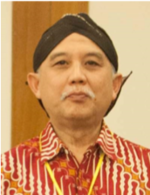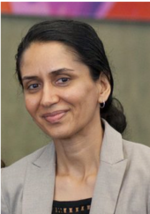Mini-Grid Webinar Series 2019 - 3rd Webinar
►Link to Mini-Grid Webinar Series 2017
|
Mini-Grids Webinar Series 2019 |
The Hydro Empowerment Network (HPNET) is a south-south, knowledge exchange and advocacy platform to advance small-scale (<1MW) hydropower. HPNET, in partnership with the WISIONS of Sustainability Initiative and Energypedia, is conducting a 4-part, quarterly webinar series on mini-grids.
Renewable energy mini-grids are a cost-effective and reliable solution for energy access. Within the technologies available for mini-grids, micro and mini hydropower (MHP)1 has added advantages. It's techno-economic characteristics, such lower levelized cost of electricity, per kilowatt cost, and no need for battery storage, make it economically viable for grid interconnection and productive end use applications. read more
Because MHP hardware can be manufactured locally and maintained by local actors, MHP development imparts local skills and jobs, which can evolve into local MHP enterprises. In addition, MHP strengthens catchment area and watershed protection, in turn increasing the climate resilience of vulnerable communities in hilly regions.
The number of hydro mini-grids in rural areas of Asia, Africa, and Latin America far exceed other types of mini-grids. As a proven technology with an extensive track record, micro and mini hydropower is the focus in this mini-grid webinar series. The objective of the series is to facilitate exchange among diverse actors advancing small-scale hydro, and promote approaches that lead to long-term success and optimal local benefits. Each of the four webinars will respectively provide insight on MHP reliability, sustainability, financing, and planning for scalability.
[1] In this context, micro hydropower refers to <100kW, and mini hydropower refers to 100 - 1000 kW (or 1MW).
Mini-Grid Sustainability: Transitioning to Social Enterprise for Energy and Economic Development
Webinar Recording
Collective research and hindsight within the Hydro Empowerment Network reveal that the long-term sustainability and impact of hydro mini-grids is dependent on how well the project is run as a viable and inclusive enterprise. This webinar – the 3rd in the series – will feature mini-grid practitioners in South and Southeast Asia who are leading the transition from grant-dependent to enterprise-based micro and mini hydropower projects. The webinar will present:
- The linkage between enterprise-based approaches and long-lived hydro mini-grids;
- Best practices to transition from grant-dependent to local social enterprise models, based on micro hydro experience in Nepal, Malaysia, and Indonesia;
- Solutions to scale their efforts to more micro hydro communities, including how to make better use of funding resources that currently go toward grant-dependent projects.
Presentations will be followed by a Q/A session open to all participants. read more
In contexts where small-scale, community-based hydro mini-grids have been scaled to thousands of communities, projects typically have been funded by grant or subsidy programs, e.g. Nepal and Indonesia. The primary ownership and management structure in these projects has been user-based groups, e.g. village electrification committees (VECs), which can be inclusive but are challenged in achieving financial sustainability. Most projects operate only for night-time use, although electricity is available 24 hours -- leading to minimal revenue generation. Due to limited revenue, there is no savings. So when repair and maintenance is required the VECs raise funds through door-to-door collection. This is time intensive and a heavy burden for VEC leadership.
However, there are other contexts where scaled implementation of hydro mini-grids has occurred without grants and subsidies, e.g. Afghanistan and Myanmar. In these cases, projects have been driven by enterprise development that has enabled revenue-generation sufficient for micro hydro O/M, repair, and capital costs in some projects. Because the project have included self-financing, ownership and management structures have varied from VECs to cooperative-owned, developer-owned, and hybrid community-private models. A common factor among the different model has been the presence of an entrepreneurial individual or organization. This entrepreneur is keenly able to identify, establish, and incentivize productive end use that generates local economic value-add, and ultimately run the micro hydro as a sustainable enterprise. Over the last year HPNET has facilitated a closer look to understand the factors for sustaining hydro mini-grids over the long-term. In comparing the above two scenarios it has become evident that:
- Grant and subsidy dependent projects often lead to projects with poor load factors and therefore inadequate revenue generation to enable long-term financial sustainability.
- Ownership models of grant-dependent projects tend to be inclusive but typically are not conducive for enterprise development -- simply because user-based groups funded by grants were not required to perceive the need or knowhow to establish financial sustainability.
- While self-financed enterprise-driven projects have strong financial viability, they require more time to develop inclusive affordability and equitable benefits among factions of the community.
- To achieve both revenue-driven and equitable hydro mini-grids, a transition is needed toward local social enterprise, bringing economic value-add to the mini-grid, village enterprises, local social services, and households.
- A high impact end use for value-add of electricity is local agriculture and agri-processing; however tapping it requires energy practitioners to work with agri-value chain practitioners.
To support local practitioners and micro hydro communities in this transition, HPNET has established the initiative Social Enterprise for Energy and Economic Development (SEEED). One of its initial objectives is to identify and highlight the work of practitioners who are already paving the path toward long-lived mini-grids anchored in social enterprise. This webinar will help to do so.
Presentations
Useful Links
Speakers
 |
Risha Piya |
 |
Ayu Abdullah |
 |
Iskandar Kuntoadji |
Moderator | |

|
RANISHA BASNET |
Thematic Discussant
 |
DIPTI VAGHELA |
Organizers
|
The Hydro Empowerment Network (HPNET) is a knowledge exchange and advocacy platform for micro/mini hydro practitioners in south and southeast Asia, focusing on policy, technology, and socio-environment solutions for long-term sustainability. Core support for HPNET comes from the WISIONS initiative at the Wuppertal Institute for Climate, Environment and Energy. | |
|
WISIONS of Sustainability initiative's main objective is to make clean energy a default solution for basic energy needs in developing regions, by helping local partners to identify successes and bring them to scale through regional networks, marketing and demonstration. | |
| Energypedia UG is a non-profit organization that runs and maintains the wiki-based platform, www.energypedia.info. Energypedia.info is an online platform for collaborative knowledge exchange on renewable energy, energy efficiency and energy access in the context of development cooperation. |






















